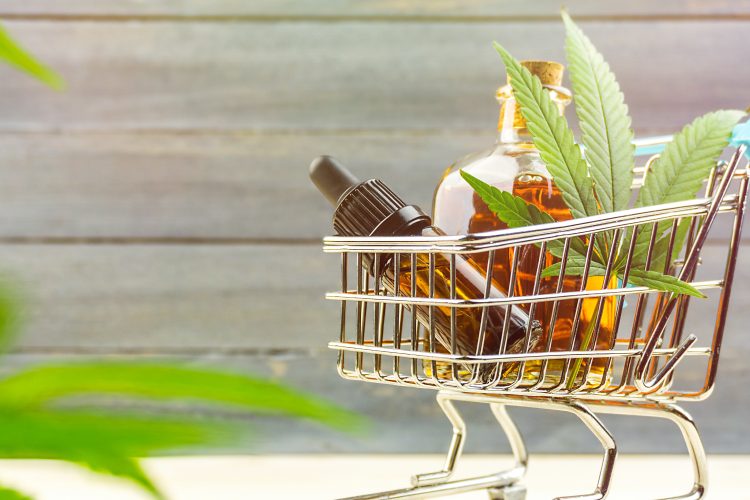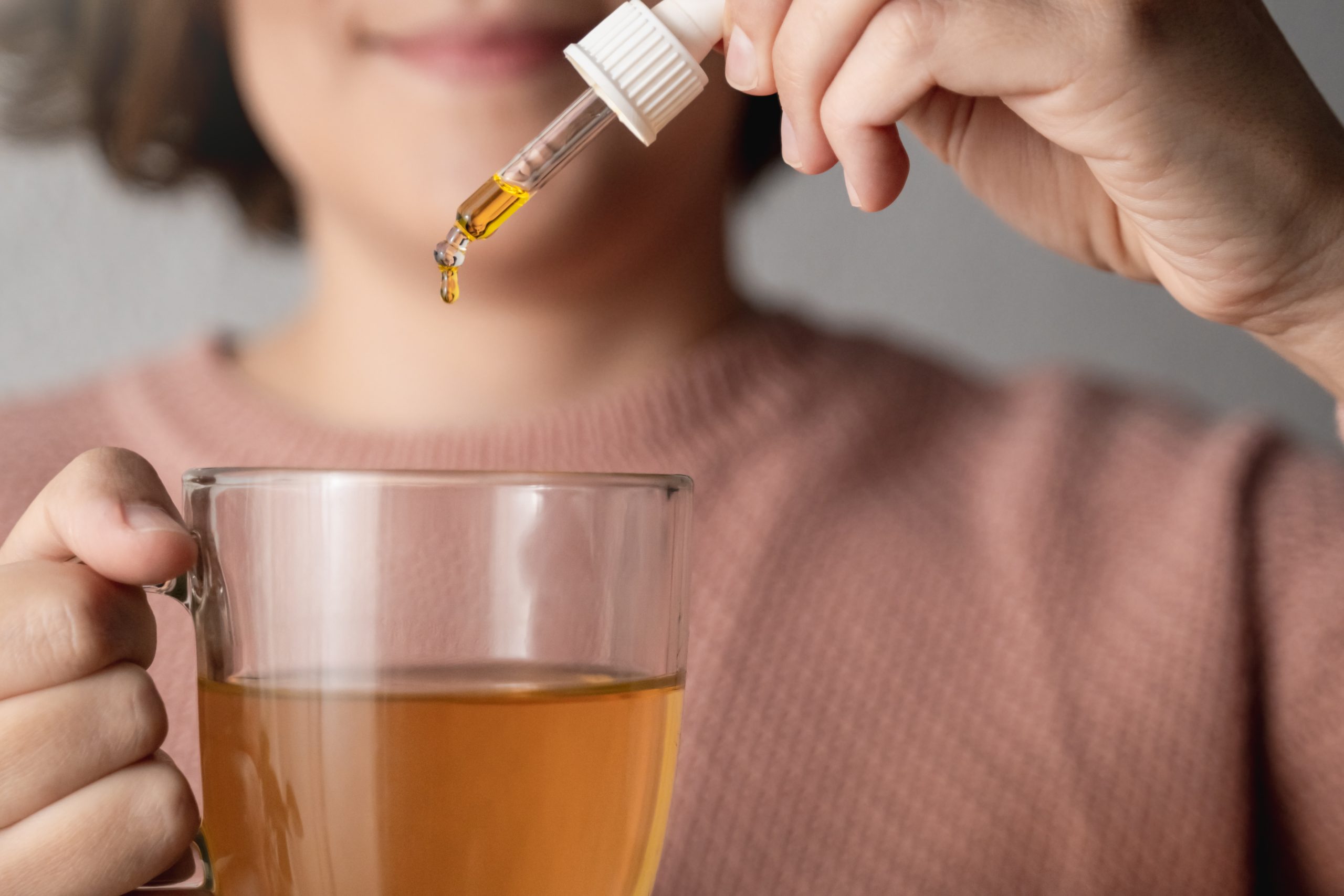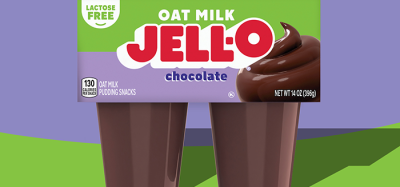Reshaping CBD: Meeting FSA’s revised standards
- Like
- Digg
- Del
- Tumblr
- VKontakte
- Buffer
- Love This
- Odnoklassniki
- Meneame
- Blogger
- Amazon
- Yahoo Mail
- Gmail
- AOL
- Newsvine
- HackerNews
- Evernote
- MySpace
- Mail.ru
- Viadeo
- Line
- Comments
- Yummly
- SMS
- Viber
- Telegram
- Subscribe
- Skype
- Facebook Messenger
- Kakao
- LiveJournal
- Yammer
- Edgar
- Fintel
- Mix
- Instapaper
- Copy Link
Posted: 22 November 2023 | Steve Brownett-Gale | No comments yet
As the UK’s CBD market surges, Steve Brownett Gale discusses evolving regulations for safety and dosage and shares how retailers and manufacturers must adapt as consumers navigate changes.


Since cannabidiol (CBD) first became legal in the UK in 2018, it has grown in popularity, with the market expected to triple in value from £690 million in 2021 to £1 billion by 2025.
Its legalisation paved the way for a new, valid therapeutic alternative to tackle pain relief and aid relaxation without any mind-altering effects. But like any new remedy, the path hasn’t been straightforward, with new studies forcing a change in regulation on product safety, sale, packaging and dosage requirements.
Steve Brownett Gale of Lifestyle Packaging discusses the most recent change to impact the CBD industry and the role of retailers and packaging manufacturers in enforcing it.
CBD regulations and advice
The Food Standards Agency (FSA) recently announced a major reduction in the recommended daily amount of CBD a person should consume from novel foods. It’s now advised that adults should have no more than 10 milligrams of CBD daily, down from 70 milligrams in 2020.
The UK food regulator’s decision comes after concerns that long-term daily use above the new recommended might cause health complications such as liver and thyroid problems.
This isn’t the first time that advice and regulations have changed, and as the CBD industry has grown, more and more restrictions have been introduced.
Since the UK government reclassified some cannabis-derived medicines in 2018, CBD products became legal in the UK, as long as they contained no more than 0.2 percent THC, ensuring the THC cannot be separated from it easily.
As of 2020, UK regulations require manufacturers of CBD oils, vapes foods or drinks to submit a novel food application to the FSA for safety assessment prior to sale. Requirements include the strain and variety of the cannabis raw material, source country, outline of the manufacturing process, quality control measures, extraction method and product specification. Cosmetic products containing it must also meet Cosmetic Products Enforcement Regulations.
Meanwhile, as of June 2023, a court ruling set a new legal precedent that is paving the way for legal CBD flower varieties, confirming it is not a narcotic.
What can retailers do?
CBD is available to purchase from various online and physical retailers, as well as in pharmacies and health food shops across the UK, in the form of oils, supplements, gel capsules, drops, tinctures and sprays, regular confectionery, drinks and standard food items.
Retailers stocking it have a responsibility to ensure customers are purchasing products that are fit for purpose and safe.
One way they can do this is by ensuring products meet the requirements of the novel food legislation, which states that pre-market authorisation, including a risk assessment, should be completed before they are available for purchase by consumers.
The FSA regularly updates its list of CBD products on sale in England and Wales that are in the authorisation process. Only authorised products should be sold, while products not on the list or marked as ‘removed’ should be withdrawn from sale.
Meanwhile, retailers should regularly keep up-to-date with consumer advice, such as the recommendations against CBD for vulnerable people and children, as well as new precautionary advice on legal consumption.
While pharmacists can refuse the sale of CBD products if they believe a customer is at risk of long-term health effects from being over the daily limit, regular retailers can’t formally stop consumers from taking it or see how much they take per day.
Instead, they should take an advisory role – briefing staff on the new advice, informing customers about it through marketing materials in-store and online and monitoring their purchase patterns.
They should also be mindful that, for a brief period, there will still be products on their shelves which feature the wrong recommended daily dosage.
What can brands and packaging manufacturers do?
Like retailers, packaging manufacturers in this space have a responsibility to stay up to date with any legislation and advice issued by the FSA regarding CBD and its authorised products.
Manufacturers should hold regular staff training sessions to ensure they are up to speed with regulations and know the correct processes that are required before a product is packaged and available to purchase.
The new advice is to lower the daily recommended dosage, so while it remains impossible to change packaging labels that predate this announcement, any new products should feature the updated consumer advice.
This is particularly important, as, according to the United Kingdom Food Labelling Regulations 1996, all food items should be sold with legally correct and accurate descriptions for the best interest of consumers.
Before selling, CBD vendors must ensure they meet packaging requirements and include the product name, product identity, dosage, health warnings, CBD purity, any ingredients, a best-before date, anti-tamper seals and storage conditions. They must also steer clear of providing any messaging that states a product can help treat, cure or prevent ailments.
Providing new information on product labels not only helps consumers to make safe and sensible decisions regarding their long-term health, but it also helps brands and manufacturers establish trust and credibility amongst industry bodies and consumers alike.
What does this mean for consumers?
The new advice has been issued to protect consumers from possible long-term health risks associated with CBD consumption.
Having responsible retailers and manufacturers who enforce new regulations and advice adds another element of safety. But, as mentioned previously, some responsibility has to be left to the consumer.


When consuming CBD products, adults should follow advice on dosage requirements
Anyone who regularly takes CBD products should follow advice on dosage requirements to ensure they aren’t consuming more than the daily recommended amount. The FSA website is an official and reliable hub for such advice, regularly updated with consumer advice and research.
In the case of vulnerable people, such as children, parents should protect them from exposure to CBD by investing in products with child-resistant packaging to avoid any chance of their young ingesting potentially harmful chemicals. They can also store them out of reach and in a zip-lock bag for extra protection.
About the author
By Steve Brownett Gale of Lifestyle Packaging
Related topics
Food Safety, Regulation & Legislation, retail, The consumer, Trade & Economy
Related organisations
Food Standards Agency (FSA), Food Standards Association, Lifestyle Packaging









